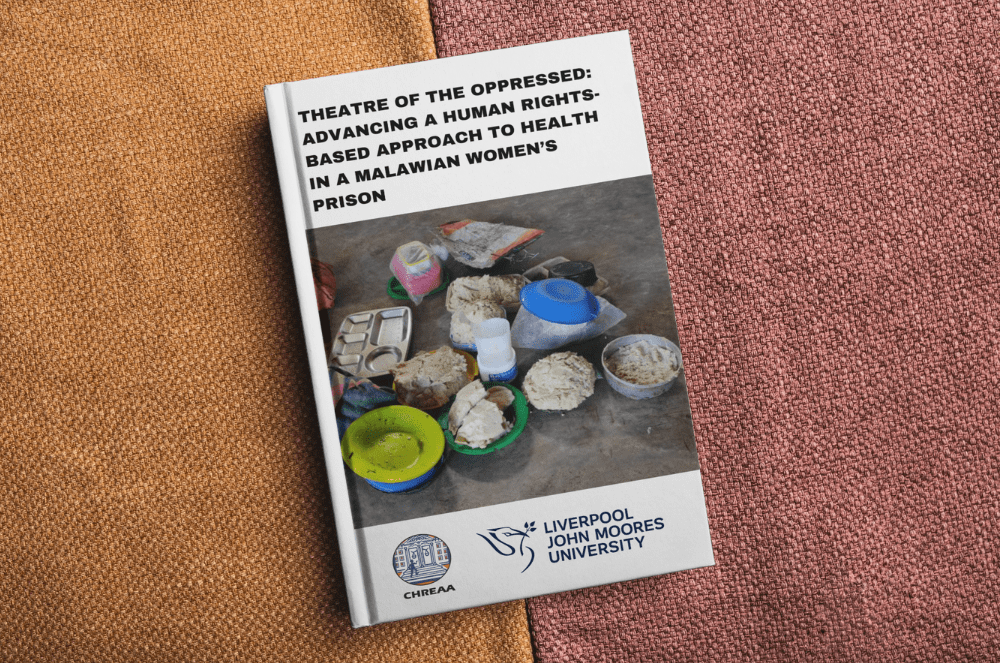This research project explores the use of Theatre of the Oppressed (TO) as a transformative approach to promote health rights in a Malawian women’s prison. Conducted in collaboration with several leading academic and human rights institutions, the initiative engaged incarcerated women to devise and perform a play addressing the health challenges and social injustices they face.
Project Team:
-
-
- Rosemary Mhlanga-Gunda (University of Zimbabwe)
- Nehemiah Chivandikwa (University of Zimbabwe)
- Luis Gadama (College of Medicine, University of Malawi)
- Chrissie Thakwalakwa (Centre for Social Research, Chancellor College)
- Chimwemwe Mula (Kamuzu College of Nursing)
- Victor Mhango (CHREAA)
- Chikosa Banda (University of Malawi)
- Stephanie Kewley and Marie Claire Van Hout (Liverpool John Moores University, UK)
-
Background
The project addresses the need for health justice in prisons, where detainees are entitled to the highest attainable standard of health. Using TO techniques, 40 women prisoners collaborated to create a play highlighting health-related injustices. The play was performed by eight male prisoner-actors, sparking discussions among the audience, which included facilitators, prison officials, policymakers, and fellow prisoners.
Key Findings
Thematic analysis identified three critical areas of concern:
- Poverty and Restricted Access to the Outside World – Economic vulnerability limits inmates’ support networks and health resources.
- Female Dignity and Sexual Autonomy – Women face challenges in maintaining dignity and autonomy over their sexual and reproductive health.
- Relational Aesthetics and Social Justice – The TO approach fosters dialogue, empathy, and collective problem-solving between prisoners and stakeholders.
Conclusion
The study demonstrates that Theatre of the Oppressed offers a powerful, participatory medium for advancing sexual health rights within prisons, paving the way for sustainable, rights-based interventions. This approach can be replicated across other African prison contexts to promote justice and dignity for incarcerated women.
Funding
This research was generously supported by Liverpool John Moores University.
Access the full publication: Theatre of the Oppressed: Advancing a Human Rights-Based Approach
(Journal of Sustainable Development in Africa, Volume 22, No.2, 2020 | ISSN: 1520-5509)

